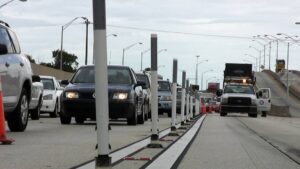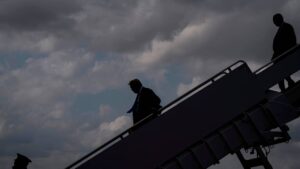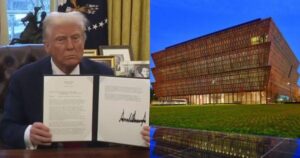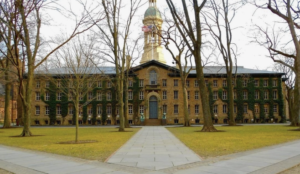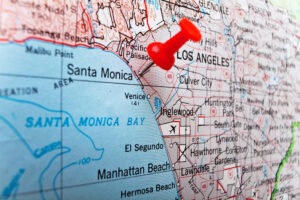WLRN Public Media | By Tim Padgett
The controversial global trade tariffs President Donald Trump imposed Wednesday were relatively light for Latin America and the Caribbean. But experts say South Florida, with its heavy economic ties to the region, will likely feel significant residual effects, especially in tourism.
Latin American experts also worry that if Trump’s tariffs put a serious enough damper on economic activity in the region, it could trigger a new wave of immigration, both across the continent and to the U.S. southern border. That could be especially problematic in countries like Venezuela, which is still struggling with the worst humanitarian crisis in modern South American history — and which Trump hit with a 15% tariff. Nicaragua’s is 18%.
Trump on Wednesday announced a minimum tariff of 10% on imports, with the rate running much higher on products from certain countries like China and those from the European Union.
The announcement jolted markets worldwide, but Trump offered an upbeat reaction after he was asked about the stock market’s huge drop as he left the White House to fly to his Florida golf club in Doral on Thursday.
“I think it’s going very well,” he said. “We have an operation, like when a patient gets operated on and it’s a big thing. I said this would exactly be the way it is.”
Latin America was largely spared in Trump’s lengthy list of sweeping new tariffs on American imports — some as high as 50%. Most of Latin America felt only his baseline 10%.
One exception was oil-rich Guyana, which got slapped with a 38% tariff because Trump said it charges the U.S. an average 76%. Guyana disputes that figure.
READ MORE: How much will tariffs raise prices? Trump’s economists just revealed their answer
In a statement released Thursday, the Guyanese-American Chamber of Commerce in Miami criticized the new U.S. tariff on imports from Guyana:
“The imposition of these tariffs appears to be linked to the evolving economic landscape, particularly Guyana’s rapidly growing oil industry,” the statement said.
“[But] the disproportionate impact of these tariffs on a small, vulnerable economy like Guyana’s cannot be overlooked. This policy threatens to undermine the gains” the developing South American nation has been making since potential billions of barrels of oil were discovered off its shores a decade ago.
Either way, Florida International University business professor Jerry Haar told WLRN even the imposition of the lower 10% tariffs around the region is still likely to appreciably raise the cost of Latin American products, from blueberries to leather belts.
That will make U.S. consumers less likely to buy them — leaving Latin Americans with less disposable income to spend in their favorite foreign destination, South Florida.
“That will deter them from coming for vacations,” Haar said. “That is going to impact the South Florida hotel sector, no question about that. So that’s something we absolutely should be concerned about.”
At the same time, Haar said Latin America and the Caribbean were indeed lucky to dodge heavier Trump tariffs. And he attributed it to the region being low on Trump’s protectionist radar screen.
“Latin America is not a threat to the United States, economic or politically,” Haar pointed out.
“Latin America should be delighted it’s not in the spotlight.”
Even Mexico, which earlier this year looked as if it would be one of the countries hardest hit by Trump’s tariffs, along with Canada, was actually spared from this week’s onslaught, largely because of its membership in the U.S.-Mexico-Canada free trade agreement, or USMCA, signed under Trump’s first presidency.
One silver lining to the tariff increase, Haar added, is that it might force Latin American economies to become more efficient.
Otherwise, though, he and most of the rest of the economist community fear Trump’s global trade war will result not in a prosperous “golden age” for the U.S. but rather potentially steep inflation and deep recession for America and the rest of the world.
Haar also fears the Trump tariffs will drive more Latin American economies away from the U.S. and toward China — whose burgeoning financial and diplomatic presence in the western hemisphere already has U.S. politicians like Secretary of State Marco Rubio alarmed.
In a visit to Guyana last week, in fact, Rubio offered the U.S.’s pledge to protect the country from any military incursion by neighboring Venezuela — which claims ownership to Guyanese oil — in part to help blunt China’s growing influence there.
This story was originally produced by WLRN, South Florida’s only public radio station at 91.3 FM, as part of a content sharing partnership with MIA Media Group. Read more at WLRN.org





